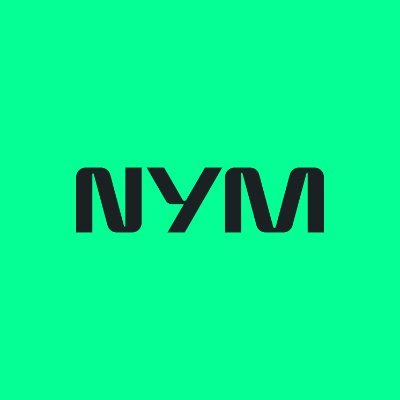
INTMAX main
@intmaxIO
Followers
32K
Following
624
Media
337
Statuses
1K
A privacy L2 with a stateless architecture for transfers and payments. Achieving hyper-scaling and privacy at the same time.
Ethereum
Joined September 2021
Every smart device in your home tells a story about you. In 2016, Vizio settled with the FTC for $2.2 million after tracking 11 million smart TVs without proper consent, collecting viewing data and selling it to advertisers. Your connected devices reveal: - Daily routines
1
0
9
A single CEX data breach links your name, address, and government ID to your wallet address. From that moment forward, every transaction you make becomes permanently visible. Blockchain explorers can now trace: 🔹 Your entire financial history 🔹 Who pays you and who you pay 🔹
3
3
18
Sustainable privacy means the system works without you trusting anyone. INTMAX rebuilt payments from zero with stateless architecture, zero-knowledge proofs, and only 5 bytes of data per transaction. Your balance never lives on-chain, your transfers stay untraceable. 180K ETH
3
3
18
5️⃣ Around $800M in assets have already been transferred privately through Intmax. The system works without triggering compliance flags or forcing users into speculative positions. This is live today, not vaporware. Privacy is a right, not a risk. 🔒
0
0
4
4️⃣ Approach #3: Stateless Zero-Knowledge Layers How it works: Your USDC stays USDC. Your ETH stays ETH. Zero-knowledge proofs let you prove transactions are valid without revealing details. INTMAX uses stateless architecture, meaning no shared pools and no forced asset swaps.
1
0
4
3️⃣ Approach #2: Privacy Coin Bridges How it works: You convert your ETH or USDC into a privacy-focused cryptocurrency like Monero or Zcash. These coins use built-in cryptography to hide transaction details. You then transfer the privacy coin and convert back to your original
1
0
1
2️⃣ Approach #1: Mixers How it works: Multiple users deposit assets into a shared pool. The protocol shuffles the funds and allows withdrawals to fresh addresses, breaking the on-chain link between deposit and withdrawal. The tradeoff: You become associated with everyone else in
1
0
0
3 ways to get privacy on Ethereum. 🔒 Each approach works differently, with distinct tradeoffs around asset custody, regulatory considerations, and technical design. Here's how they compare. 🧵
2
1
13
AI can identify your wallet with 90% accuracy right now. Blockchain analytics companies are using machine learning to cluster addresses with accuracy rates exceeding 93%, and they only need transaction timing and gas patterns to do it. No KYC required, no data breach needed.
1
2
18
The smarter AI gets, the more it knows about you. Every public blockchain transaction feeds machine learning models that profile your behavior, predict your moves, and monetize your patterns. Your wallet history has become commercial intelligence sold to the highest bidder.
1
1
15
You receive an email from "your exchange" asking you to verify your account. The link looks legitimate. The domain almost matches. You click 🖱️ Within seconds, malware drains your wallet or captures your credentials. This is how most crypto thefts begin. Not through complex
4
0
15
Why privacy matters? "People's economic situation makes privacy popular or unpopular." When markets rise and people make money, interest in privacy spikes because they suddenly have something to lose. Traders who profit don't want their strategies exposed. High net worth
2
3
12
How to Move Money Privately in Crypto 👇 Privacy in crypto comes in different forms, each offering a distinct way of protecting user data and transactions. Some systems build privacy into the asset itself. ZCash and Monero encrypt transaction details, amounts, senders, and
1
2
12
Is your data really protected? A third-party breach tied to Discord exposed over 2 million users’ government IDs and personal info. This is not just about Discord, it’s a systemic problem. Each new leak feeds the data machines that power tracing, deanonymization, and identity
1
2
16
Why privacy matters? 👇 🔹 Financial institutions sell your data. Your transaction history (what, when, where, how much) can be shared or sold unless you actively opt out. 🔹 Studies show that this data is more valuable than social media, it reflects real behavior. 🔹
1
0
9
“People aren’t serious about their onchain privacy because they still think their traces are limited.” That’s no longer true. AI-assisted clustering, advanced graph models, address-enrichment APIs, and bubble-map tools have made tracing cheap and widely accessible. The same
2
1
13
$800M secured, privately. 🛡️ Mainnet just launched, and the world is already trusting us to protect what matters the most: privacy. Ethereum private payments start here!
1
2
20
Is the World Ready for Stablecoin Payments at Scale? The promise of stablecoin payments is undeniable: a frictionless, global, low-fee alternative to traditional banking and credit systems. Stablecoin adoption has already reached staggering heights. The total market cap for
3
0
12
Want to see how tokens and NFTs can travel without leaving a trace? With Intmax, now live, you can bridge from Ethereum and move tokens privately. Stateless, efficient, and built for true digital privacy. 🛡️ Learn how in this quick tutorial.
1
1
20

